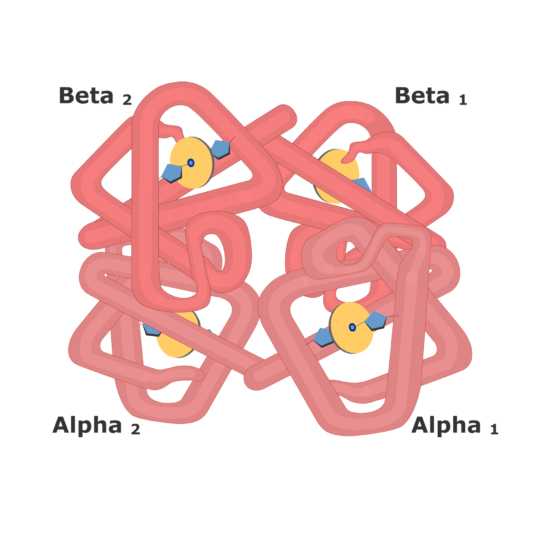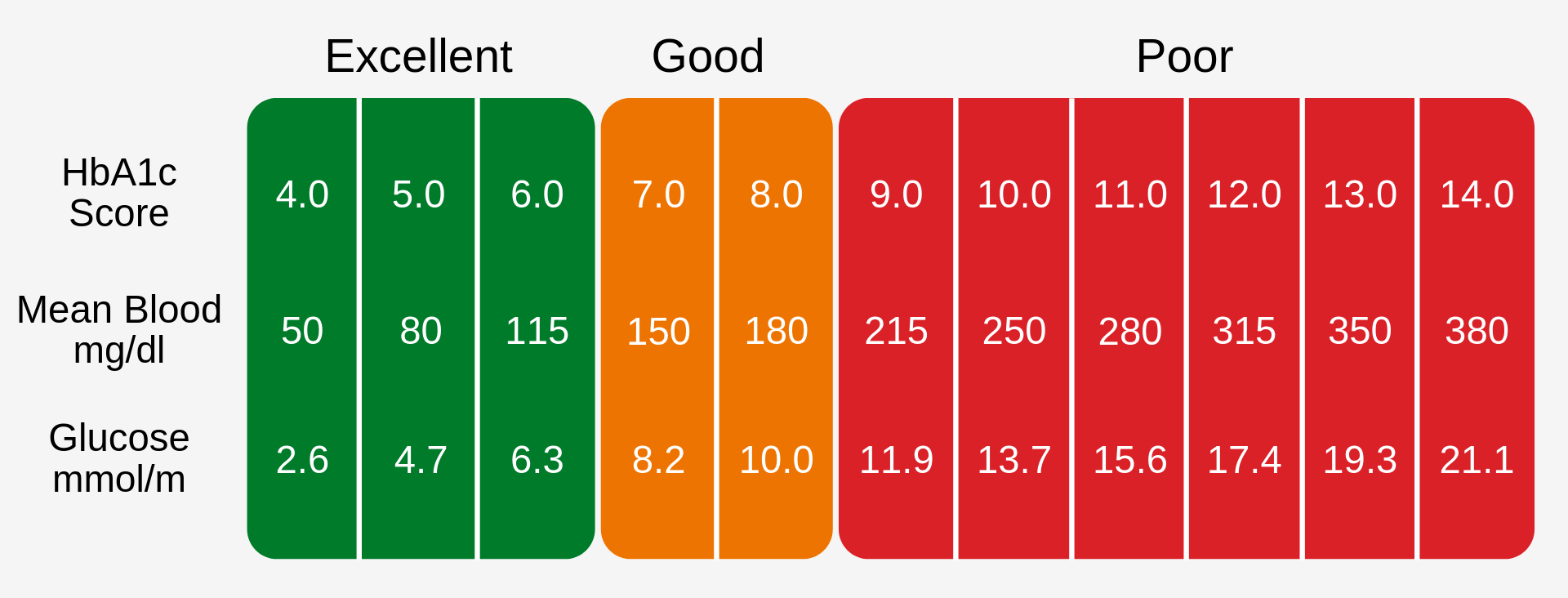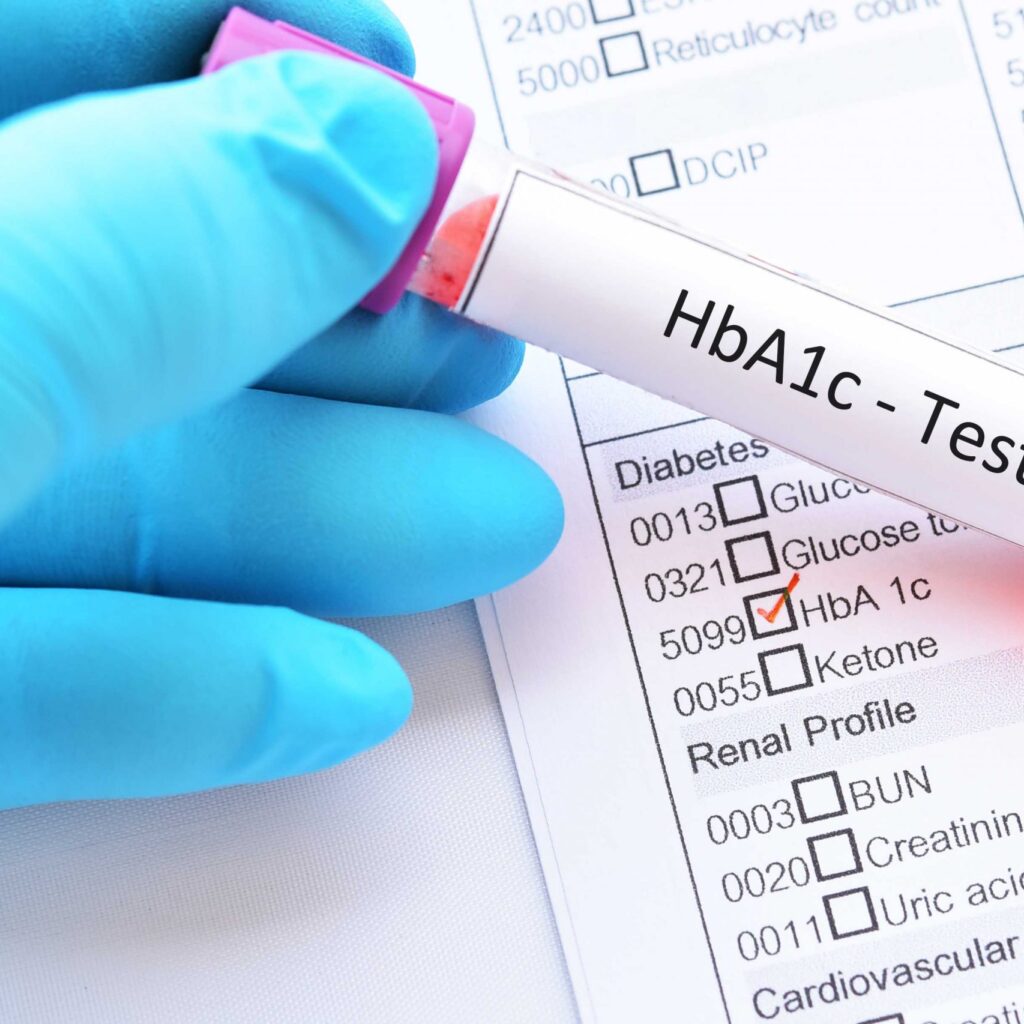Recently I was contacted by a relative of mine who showed me a set of investigations. He has been diagnosed with type 2 diabetes. He was doing a monthly fasting blood sugar test and he was happy with his fasting blood sugar values.
However, since he has not done an HbA1c test for a very long time, I suggested him to undergo one. And this set of investigations he showed me included his HBA1C test.
And the report was not good, his HbA1c value was 8. For someone who is managing diabetes or who is having diabetes, it is vital to understand the different investigations you have to undergo, and what they mean, and why you should do it.
In this post, I’m going to talk about the HBA1C test, in detail
What is an HbA1c test?
HbA1c test, also known as A1c, Hb1c, Haemoglobin A1c, is a test done to determine the long-term glycemic control of a patient.
What is the basis of the HbA1c test?

Hemoglobin is the oxygen-carrying protein molecule in the human blood. It is a protein that is inside the red blood cells.
The hemoglobin molecule is made up of 4 chains of proteins, biding together to form one hemoglobin molecule. 2 alpha chains and two beta chains.
Glucose can bind to these hemoglobin molecules and the number of hemoglobin molecules that get attached to glucose depends on the concentration of glucose that is in your blood.
The higher the glucose concentration in your blood, the higher the number of hemoglobin molecules that are bound to glucose. These hemoglobulin molecules are known as glycosylated hemoglobulin molecules.
Since a red blood cell can live up to 120 days (roughly 3 months) in a human body, by measuring the percentage of glycosylated hemoglobin we can get an idea about the average concentration of glucose in a person’s blood.
How to prepare for an HbA1c test?
Unlike a fasting blood sugar test, you don’t need to be fasting or need any special preparation. You can visit a laboratory and give your blood anytime, However, it’s always better to give the blood in the morning so you can get the report by afternoon.
What is the normal HbA1c value?

- For someone healthy, your HbA1c value should be less than 6%.
- If you are pre-diabetic or having good glycemic control, then your HbA1c value should be between 6%-6.4%.
- If you are having diabetes, or your glycemic control is poor, then the HbA1c value should be above 6.4%.
- If your HbA1c value is above 8% then that means you are likely having very poor control of your diabetes.
What if my fasting blood sugar level is normal, but my HbA1c value is high?
Fasting blood sugar value, and the HbA1c value reflect two different things. That’s why you need to know about tests done in diabetes.
Fasting blood sugar level gives a snapshot of your blood sugar level at a particular time.
The HbA1c test gives an idea about the average blood sugar level during the past 3 months.
That means, even if your fasting blood sugar levels are normal, you might be having high blood sugar levels throughout the day when you are not fasting.
This can be due to poor dietary habits, problems with your medication, or some other reason.
When should you do an HbA1c test?
If you are someone with diabetes, then you should do an HbA1c test every three months.
If you are not diagnosed with diabetes, there is no reason to do an HbA1c test, and you should first do a fasting blood sugar test, and depending on the value, your doctor might request you to undergo an HbA1c test.
This is because the HbA1c test is not currently considered a test to diagnose diabetes by current guidelines.
I advised my relative that this reflects poor glycemic control, and that he should meet his family physician to get his blood sugar under control, and also repeat a new HbA1c test in 3 months.
Get a summery of all commonly done blood sugar tests for diabetes




